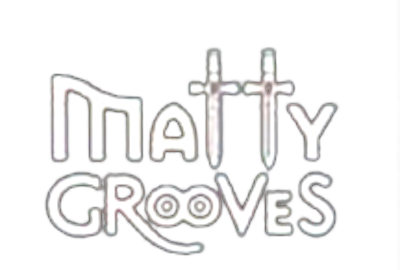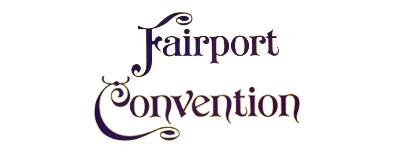Album Releases  view
view
Members
 5 Mixed
5 Mixed
Origin
 London,England
London,England
Genre
 Rock
Rock
Style
 Folk
Folk
Mood
---
Active
 1967 to Present...
1967 to Present...
Cutout

Current Record Label

Origin
Genre
Style
Mood
---
Active
Cutout

Current Record Label

4 users
4 users
4 users
4 users
4 users
Artist Biography
Available in:
Fairport Convention played its first concert in a church hall in May 1967. Based in suburban north London, the group had coalesced around bass guitarist Ashley 'Tyger' Hutchings.
The youngsters 'convened' for rehearsals at a house named Fairport, the family home of rhythm guitarist Simon Nicol. Thus was born the name of a band that has endured for nearly four decades.
As well as Hutchings and Nicol, there was lead guitarist Richard Thompson and Shaun Frater on drums.
However, that initial line-up only played the one gig. A young drummer, Martin Lamble, was in the church hall audience and he convinced the band that he could do a better job than the incumbent. It was the first of the bewildering flurry of line-up changes that characterised Fairport's first fifteen years.
Fairport soon augmented its line-up with a female singer, Judy Dyble, which set it apart from the dozens of other bands springing up from the fast-moving youth culture of that summer.
Fairport found no shortage of work and was soon a regular act at underground venues such as The Electric Garden, Middle Earth and UFO.
The band had only been playing a few months when they caught the ear of Joe Boyd who secured them a contract with Island Records. Boyd suggested they augment the line-up with another male vocalist and so Iain Matthews joined the band and the first album, Fairport Convention, came out before the end of 1967.
At this early stage, Fairport looked to America for material and inspiration. "The two lead vocalist approach appealed to us," Matthews recalls. "and because of our name and onstage presence, lots of people thought we were American, and we were not about to attempt to dispel that presumption." This led to the band being dubbed 'the British Jefferson Airplane'.
By the time the second LP, What We Did On Our Holidays, was released Judy Dyble had been replaced by Sandy Denny, a folk singer who had previously recorded as a soloist and with the Strawbs.
The third album, Unhalfbricking, featured a guest appearance by Birmingham folk fiddler Dave Swarbrick. This album, like its predecessor, mixed strong original material with contemporary songs by artists such as Joni Mitchell and Bob Dylan.
Radio DJ John Peel was a staunch champion of Fairport's music. He played the band's albums on his influential BBC shows. Peel also recorded a number of BBC sessions which were later released later as the album Heyday pictured.
By now the band was on the cusp of inventing folkrock, a hybrid of imaginative revivals of traditional material with modern instrumentation and rhythms. Richard Thompson had developed into an exceptionally talented and inventive guitarist, and the band was increasingly penning its own material.
Fairport Convention even entered the singles charts with Si Tu Dois Partir, a French language version of Bob Dylan's If You Gotta Go. The record just missed the top twenty but got the band a slot on Top Of The Pops (pictured left).
Things were looking rosy when disaster struck. Fairport's van crashed on the M1 motorway on the way home from a gig in Birmingham. Martin Lamble - just 19 years old - and Jeannie Franklyn, Richard Thompson's girlfriend, were killed. The rest of the band suffered injuries of varying severity.
The young musicians nearly decided to call it a day. But they didn't and, once recovered, they went back into the studio. Matthews had left the band by then and Dave Mattacks took over the vacant drum stool. The resulting LP, Liege And Lief, was a classic. This was arguably Fairport Convention's finest album and established British folkrock as a distinct and influential genre.
Liege And Lief was launched with a sell-out concert in London's Royal Festival Hall late in 1969. Dave Swarbrick had made a big contribution to the project and he now joined the band full-time.
Despite the triumph of Liege And Lief, founder member Ashley Hutchings quit to form Steeleye Span. To compound Fairport's problems, Sandy Denny also left the band.
Dave Pegg took over on bass guitar and has been in the band ever since, an unbroken stint of 34 years. Sandy Denny was irreplaceable so the band decided to continue without a female singer.
All the band members and their families moved in to The Angel, a former pub in Hertfordshire. There was nearly another tragedy when a runaway lorry crashed into the building. Dave Swarbrick was rudely awoken as the truck demolished his bedroom, leaving him unhurt but covered in rubble.
The next Fairport album was Full House but soon after its release Richard Thompson left the band. Simon Nicol was now the only original member.
The band played on. Dave Swarbrick developed a folkrock opera called Babbacombe Lee and life in the ex-pub inspired the LP Angel Delight. The two albums were the first time the same Fairport line-up had recorded consecutively - every other release had seen changes in personnel from its predecessor.
Simon Nicol left Fairport early in 1972, followed by Dave Mattacks although both would rejoin later. That left the two Daves, Pegg and Swarbrick, holding the band together.
The following few years were dubbed 'Fairport Confusion' as a bewildering sequence of band members came and went. Of the albums released during this period, Fairport Nine and Rosie were probably the most successful.
In 1974, Sandy Denny rejoined Fairport Convention for a couple of years. She is featured on the album Rising For The Moon but she left again in 1976.
Having come to the end of the contract with Island Records, Fairport signed up with Vertigo. By now, the line-up had stabilised and Simon Nicol was back in the band. But after two of four contracted albums, Vertigo wanted out - in fact, the label ended up paying Fairport Convention not to make albums.
In 1979 the band had no record deal and Dave Swarbrick's hearing was deteriorating rapidly. Fairport decided to call it a day. The band did a farewell tour and played a final outdoor concert in Cropredy, the Oxfordshire village where Dave and Christine Pegg lived. No record company wanted to release the live recordings of the tour and concert so the Peggs started Woodworm Records and released it themselves.
After a year, Fairport Convention staged a re-union concert in Cropredy and the famous festival was born. Over the next few years, it grew rapidly. Soon Fairport was staging New Year gigs and playing in Scandinavia. The Peggs continued to record and release the Cropredy concerts as 'official bootlegs'.
Meanwhile, Dave Pegg had joined Jethro Tull and Simon Nicol had teamed up with Dave Swarbrick in an acoustic duo. In 1985 both Pegg and Nicol had some spare time. Dave Mattacks (pictured left) was free too. They decided to record an album of new material in the Peggs' studio.
Dave Swarbrick declined to join the new band so violin virtuoso Ric Sanders, formerly of Soft Machine, was invited to participate. Multi-instrumentalist Maartin Allcock was also recruited and the five-piece recorded Fairport's only all-instrumental album Expletive Delighted.
With its mix of old stagers and new blood, this proved to be Fairport Convention's longest-lasting line-up - eleven years.
In the early nineties, a four-piece acoustic line-up emerged, the two versions of Fairport running in parallel. Woodworm continued to record and release the band's studio albums and live 'boots'.
Maartin Allcock left in the mid-90s and was replaced by Chris Leslie on mandolin and fiddle. Chris proved to be a talented songwriter and has made a significant contribution to the band's repertoire.
In 1998, Dave Mattacks moved to the USA and Gerry Conway, who had travelled a parallel musical road to Fairport for 30 years, took over on drums and percussion.
The new century found Fairport in fine form. Concert halls were full and records were selling well. The year 2000 was marked by the very successful 'Y2K' tour and a new studio album, The Wood And The Wire.
Free Reed Records, an independent label, released Fairport Unconventional, a four-CD boxed set of rare and unreleased recordings from the band's 35-year career in 2002.
Fairport Convention won the coveted Lifetime Achievement Award at the 2002 BBC Radio 2 Folk Awards. The seminal album Liege And Lief was voted 'Best Folk Album Ever' by Radio 2 listeners. In Summer 2006, Liege And Lief was awarded a Gold Disc for its continuing sales.
Fairport Convention is still one of the busiest bands around. The current line-up of Simon Nicol (lead vocal, rhythm and electric guitars), Dave Pegg (backing vocals, bass guitar, mandolin), Ric Sanders (violin), Chris Leslie (lead vocal, fiddle, bouzouki, mandolin) and Gerry Conway (percussion and drums) still packs venues on its frequent tours.
Each year starts with Fairport covering the length and breadth of Britain on its Winter Tour. In August, the band stages Fairport's Cropredy Convention music festival in Oxfordshire. Most years, there is a tour in the USA and Canada and UK tours by the Fairport Acoustic line-up and by spin-off band The Dylan Project.
Wide Thumb

Clearart

Fanart




Banner

User Comments
 No comments yet..
No comments yet..

 90%
90%

























